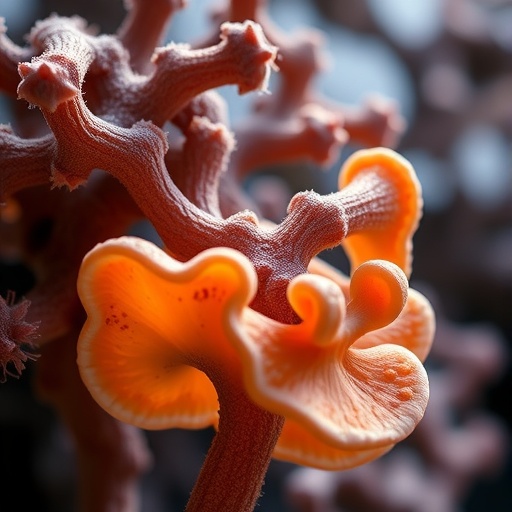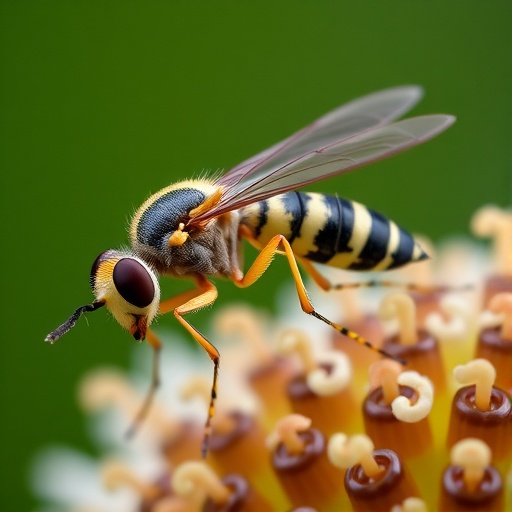
In a remarkable stride toward understanding how organisms adapt to rapidly changing environments, The Kavli Foundation and the U.S. National Science Foundation (NSF) have announced the recipients of their latest round of funding under the joint Neurobiology in Changing Ecosystems (NiCE) initiative. This pioneering program, which marries neuroscience, ecology, and biology, is designed to explore how nervous systems function and evolve amidst dynamic, anthropogenically influenced natural settings. The new grants, totaling $1 million per project over three years, reflect a deepening commitment to interdisciplinary research that transcends traditional academic boundaries and confronts one of science’s most complex challenges: decoding the neural underpinnings of adaptation in a transforming world.
The NiCE program builds on its inaugural 2024 awards, reinforcing an urgent scientific imperative to understand how nervous systems mediate the behavioral and physiological flexibility essential for survival under environmental stressors. These stressors include chemical pollution, noise, and rapid temperature shifts—anthropogenic disruptors that are reshaping ecosystems worldwide. Unlike more conventional neuroscience studies that focus on simplified laboratory conditions, NiCE-funded research insists on contextualizing neural function within the ecological realities organisms face, pushing boundaries in how neuroscience can be integrated with environmental sciences.
At its core, NiCE embraces the complexity of biological organization, linking molecular and cellular neuroscience with whole-organism behavior and ecosystem dynamics. According to Dr. Susan Renn, a Biology professor at Reed College and long-time observer of the initiative, the program pushes the envelope on how we think about the brain—not merely as a biological machine isolated within skulls but as a responsive organ embedded in and shaped by ever-shifting environmental variables. This approach heralds a transformative moment in neurobiology, demanding innovative methodologies and cross-disciplinary perspectives that were once considered out of reach.
Among the newly funded projects, the University of Oregon team, led by Judith Eisen and her colleagues John Postlethwait and Philip Washbourne, is investigating the combined effects of rising global temperatures and exposure to dioxin, a notorious estrogen-disrupting chemical pollutant, on the neurobehavioral development of zebrafish. Using advanced neuroimaging and behavioral assays, they aim to untangle how these environmental factors synergize to alter neural circuits responsible for reproductive behaviors. Their work not only promises to elucidate fundamental mechanisms of neuroendocrine control in fish but harbors broader ecological implications by connecting how shifting climates and pollutants might imperil fish populations crucial to aquatic food webs.
Meanwhile, Johns Hopkins University’s research group under Cynthia Moss, along with investigators Kishore Kuchibhotla and Amanda Lauer, is breaking new ground in auditory neuroscience by exploring how species like bats and mice exhibit neural adaptations that confer resilience to increased anthropogenic noise. Employing cutting-edge electrophysiological recordings and computational models, they seek to identify protective mechanisms within auditory pathways that safeguard hearing and cognitive processing. This research could yield profound insights into how wildlife copes with human-created acoustic pollution and inspire novel strategies to mitigate hearing loss in humans living in noisy urban environments.
At the University of Kentucky, Clare Rittschof is delving into the neurobiological mechanisms through which honey bees integrate environmental cues such as daylength and temperature to modulate behaviors critical for pollination. Through sophisticated neural circuit analyses and behavioral tracking under controlled environmental manipulations, Rittschof’s team aims to uncover how these vital pollinators adjust their foraging and social behaviors in response to climatic variability. Given the mounting threats to pollinator health globally, their findings bear significant promise for ecological conservation and agricultural sustainability.
The Massachusetts Institute of Technology group led by Brandon Weissbourd is taking an innovative approach to developmental neurobiology by utilizing the genetically tractable jellyfish species Clytia to investigate how early life stages perceive and respond to environmental stimuli. Their research will use state-of-the-art genetic tools combined with in vivo imaging techniques to examine larval sensory processing and decision-making related to habitat selection. These insights into the neural basis of settlement behaviors have far-reaching implications for understanding marine ecosystem dynamics, invasive species management, and the evolutionary origins of neural circuits underpinning navigation and choice.
Together, these projects exemplify NiCE’s core mission: to uncover fundamental principles that govern neural adaptation across phyla and ecosystems, thereby mapping a new frontier in understanding resilience to environmental change. This initiative signals a shift from reductionist neuroscience toward a more integrative science that embraces the fluid interface between organisms and their ever-evolving habitats. By funding such diverse and ambitious studies, The Kavli Foundation and NSF emphasize the necessity of transcending disciplinary silos to address pressing ecological and societal challenges.
The establishment of the NiCE program itself is a testament to innovative public-private partnerships in science funding, commencing in 2023 with a shared vision to bridge the gap between neuroscience and ecology. This alliance has generated a vital platform for supporting scientifically rigorous and technologically advanced research that sidesteps the constraints of traditional lab-bound models. Instead, it champions a holistic framework where the neurobiological responses to environmental stressors are explored in situ and across scales, from molecular genetics to ecosystem dynamics.
Moreover, the NiCE awards underscore the urgency of understanding neurobiological resilience as climate change and habitat degradation intensify globally. These projects, by dissecting how nervous systems perceive, process, and adapt to anthropogenic challenges, hold promise for informing conservation strategies as well as public health efforts. The insights gained could illuminate how neurophysiological plasticity buffers or fails organisms facing environmental threats, thereby guiding interventions for ecosystem preservation and management.
Advancing such research requires cutting-edge technologies ranging from in vivo imaging, optogenetics, computational modeling, to field-based neuroethology—a diverse toolkit that NiCE-supported investigators are uniquely positioned to employ. This technological innovation, coupled with interdisciplinary collaboration, enables the integration of vast biological data, fostering unprecedented insights into the dynamic interplay between brains and environments.
Looking ahead, the Kavli Foundation’s continued investment signals an enduring commitment to reshape neuroscientific inquiry through an ecological lens. As anthropogenic forces relentlessly modify the planet’s ecosystems, understanding how nervous systems underpin adaptive behavior is not just a scientific curiosity but a vital endeavor for humanity’s future. By fostering research that is as diverse and dynamic as the ecosystems it studies, the NiCE program is catalyzing a radical redefinition of neuroscience in the 21st century—one that acknowledges the environment as an inseparable partner in the dance of neural function and evolution.
This ambitious research agenda cultivates optimism that by unraveling the neural mechanisms of resilience and adaptation, science can better predict and mitigate the impacts of global change on biodiversity and ecosystem services. Moreover, these endeavors may inspire new biomimetic technologies and conservation approaches driven by a deep appreciation of nature’s neural ingenuity. The next few years promise to be transformative as this vibrant cohort of scientists charts unexplored territories at the nexus of neurobiology and ecology.
Subject of Research: Neurobiology in Changing Ecosystems; nervous system adaptation and resilience to environmental stressors including pollution, temperature shifts, and noise.
Article Title: Neurobiology in Changing Ecosystems: New Frontiers in Understanding Brain Adaptation to Environmental Change
News Publication Date: 2025
Web References:
The Kavli Foundation: https://www.kavlifoundation.org/
National Science Foundation (NSF): https://www.nsf.gov/
NSF NiCE funding opportunity: https://www.nsf.gov/funding/opportunities/dcl-neurobiology-changing-ecosystems-nice/nsf24-121
NiCE inaugural awards announcement: https://www.kavlifoundation.org/news/kavli-and-nsf-fund-neurobiology-in-changing-ecosystems
Image Credits: The Kavli Foundation
Keywords: Neurobiology, Ecosystems, Environmental Change, Neuroscience, Adaptation, Pollution, Climate Change, Sensory Processing, Behavioral Ecology, Climate Resilience, Auditory Neuroscience, Pollinator Behavior, Marine Neurobiology
Tags: adaptation to environmental stressorsanthropogenic impact on organismsbehavioral flexibility in changing environmentsdynamic ecosystems fundingecological realities in neurosciencefunding for neurobiology in ecosystemsinterdisciplinary biological researchKavli Foundation initiativesneural underpinnings of adaptationNeurobiology research grantsneuroscience and ecology integrationNSF environmental science collaboration




